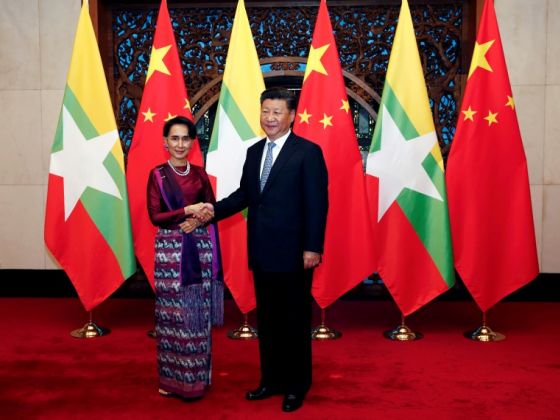The Myanmar military killed more than 50 protesters at one single protest site on Sunday, marking one of the bloodiest post-coup days in Myanmar after the pro-democracy agitators torched Chinese-funded factories. The Chinese embassy has said many Chinese employees at the factories were injured in the arson while some were trapped in the buildings.
In Hlaing Thaya, an industrial suburb of Yangon, four garment factories and a fertilizer plant were burned down by about 2,000 people when they blocked fire engines from reaching the spot.
China and Chinese assets have increasingly become the targets in Myanmar's pro-democracy protests as the people believe that China is supportive of the military junta that took power last month, ousting the democratically elected Aung San Suu Kyi.

The anger at China is also driven by a steady stream misinformation. There have been viral theories that said Chinese soldiers were infiltrating into the country after the coup and that the communist China is helping the Myanmar administration in setting up Great Firewall that will smother all forms of protests.
Myanmar's pro-democracy resistance groups fear that there will be more stringent action against the demonstrators as China has called on the administration to crack down on the protests.
"China urges Myanmar to take further effective measures to stop all acts of violence, punish the perpetrators in accordance with the law and ensure the safety of life and property of Chinese companies and personnel in Myanmar," the embassy asked the military regime, Reuters reported.
History of anti-China sentiments in Myanmar
The fault lines in Myanmar are not new, nor are they triggered only because of the military snatched power from Suu Kyi. Of course, the last ten years of limited democratic freedoms in the country was the result of the junta's decision to shed the pariah status and avoid too much dependence on Beijing.
However, now that the military has grabbed power, its immediate goal is not to win international accolades but to cement control and stay entrenched. And China's support is instrumental in achieving the short-term goal of harnessing power and legitimacy in the initial months or years of the coup.

China's big ticket investment projects in Myanmar have always attracted criticism and protests. One major example was the Myitsone Dam project, work on which was suspended in 2011 when Suu Kyi's National League for Democracy (NLD) came to power. There are concerns that China will nudge the military regime to re-start this project and other similar projects shelved after the return of democracy.
Beijing in Crosshairs
Chanting 'Shame on you China' in unison, dozens of youths gathered outside the Chinese embassy in Yangon in mid-February. The protesters had held placards that said 'Stop helping the military' and 'Myanmar Military dictatorship is 'Made in China'.
Even as the world at large condemned the Myanmar coup in strong language, China's response was mild if not entirely muted. "We have noted what has happened in Myanmar and are in the process of further understanding the situation .. China is a friendly neighbour of Myanmar..." China's foreign ministry had said after the coup.
Two days after the February 1 coup, China had blocked a UN Security Council statement condemning the military takeover of power in Myanmar. China, which has always tried to protect the pariah military regime from international scrutiny, argued that more sanctions will make matters worse.
"China seems to be proceeding as if this is Myanmar's 'internal issue' in which what we are observing is a 'cabinet reshuffle,' as China's state media put it," Myanmar expert Elliott Prasse-Freeman told the BBC.
Meanwhile, Taiwan has cautioned its citizens and businesses in Myanmar in the aftermath of the attack on China-linked establishments. Taipei told firms to display Taiwanese flag and state that they are not run by Chinese entities.









